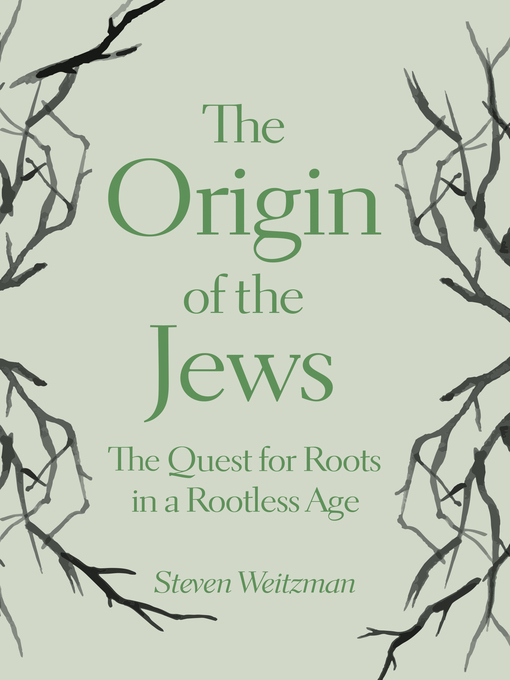The first major history of the scholarly quest to answer the question of Jewish origins
The Jews have one of the longest continuously recorded histories of any people in the world, but what do we actually know about their origins? While many think the answer to this question can be found in the Bible, others look to archaeology or genetics. Some skeptics have even sought to debunk the very idea that the Jews have a common origin. In this book, Steven Weitzman takes a learned and lively look at what we know—or think we know—about where the Jews came from, when they arose, and how they came to be.
Scholars have written hundreds of books on the topic and have come up with scores of explanations, theories, and historical reconstructions, but this is the first book to trace the history of the different approaches that have been applied to the question, including genealogy, linguistics, archaeology, psychology, sociology, and genetics. Weitzman shows how this quest has been fraught since its inception with religious and political agendas, how anti-Semitism cast its long shadow over generations of learning, and how recent claims about Jewish origins have been difficult to disentangle from the Israeli-Palestinian conflict. He does not offer neatly packaged conclusions but invites readers on an intellectual adventure, shedding new light on the assumptions and biases of those seeking answers—and the challenges that have made finding answers so elusive.
Spanning more than two centuries and drawing on the latest findings, The Origin of the Jews brings needed clarity and historical context to this enduring and often divisive topic.
- Fiction
- Nonfiction
- Biographies and Autobiographies
- Religion and Spirituality
- Politics
- Battle of the Books 2023
- RCCC Library Picks
- See all dogwood digital library's collections collections



